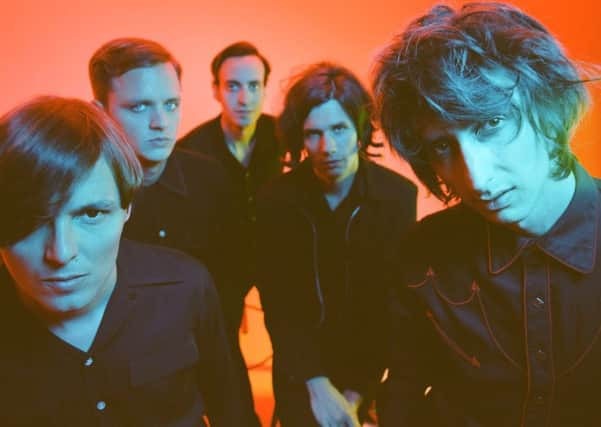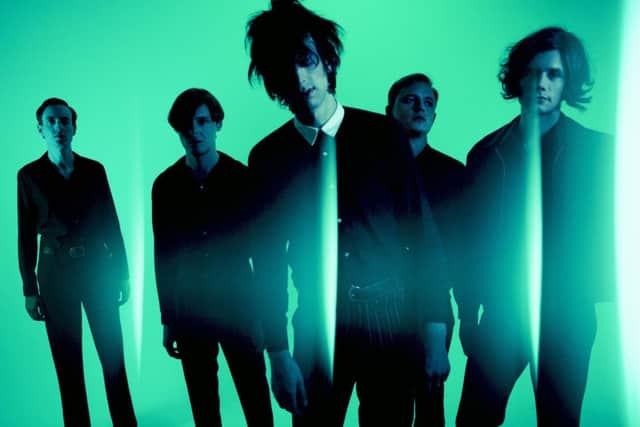Music interview '“ The Horrors: '˜With this record I think it was recognising what was good about the band'


The Horrors’ much vaunted fifth album, V, arrives later this month accompanied by talk of the band in an ‘experimental’ mood.
Singer Faris Badwan, however, shrugs off the idea that the five-piece from Southend felt they might have earned some latitude with four albums already under their belt.
Advertisement
Hide AdAdvertisement
Hide Ad“We’ve spent most of our career having freedom,” says the 30-year-old. “With this record I think it was recognising what was good about the band, recognising our strengths more than anything.


“I think when the band is most successful, when the songs are most successful, is when you hear the spontaneous moments and the little accidents. It’s so important for what makes The Horrors still work.”
Its predecessor, Luminous, might have been their second top ten hit in a row in the UK but Badwan feels the band “lost” some of their creative spark during its recording. “I think it was important that we got it back,” he says.
The Horrors’ decade-long history has been characterised by changes of musical direction, from garage and goth rock to psychedelia and shoegazing; even dance influences have reared their head. Badwan says he and his bandmates “just don’t find it that exciting” to stay in one place for too long.
Advertisement
Hide AdAdvertisement
Hide Ad“Naturally the stuff that appeals to us tends to be the unfamilar and the slightly uncertain,” he says. “It just ends up the stuff we go with, that we believe to be the right direction, tends to be the things that are a little different.”


Having produced Luminous and their highly regarded 2011 album Skying themselves, this time the band opted to work with Paul Epworth, the multiple Grammy Award winner famed for helming records by Adele, Florence and the Machine, Bloc Party, Maximo Park and The Stone Roses’ final two singles.
“With Paul, people know him more recently from his pop stuff but he’s been making great records for a long time,” says Badwan. “I’ve owned several of the records that he’s worked on and he’s into lots of music.
“He has a great ear for melody and for pop hits. I think that at the centre of our experimentation and some of the noisier stuff that we’ve done what’s always appealed to us has been strong melodies, regardless of how experimental the song is. We’ve always wanted songs to havea kind of pop element even if it’s a slightly subversive one.”
Advertisement
Hide AdAdvertisement
Hide AdThe singer feels an important part of Epworth’s contribution to the record was “to say yes to things when maybe we would have said no in the sense that we often judge songs too early”.
“When you’re being creative I think it’s so important to suspend your judgment at least until you’ve got something that’s a bit more fully formed. It’s such a trap, and it’s very often one that we fall into, to judge something before you’ve actually made anything. You’ve got to work before you can really say no to something so I think he was really good at getting us to keep working.”
The album’s opening track Hologram clocks in at six minutes long but it actually began life as a 25-minute studio jam that the band would “mess around with” at their regular Friday “party night” sessions in the studio. “As a result it ends up being a little indulgent,” Badwan notes, remembering at one stage that “the vocals didn’t come in for about 15 minutes”. “Eventually we realised that probably wasn’t the best way necessarily of presenting the song. There was one moment where I came up the stairs and they’d added this really powerful synth bassline. I think that was the moment when the song really took shape.”
Recent single Machine has a hint of the gothic synth pop of Gary Numan and Depeche Mode. Badwan admits he was a relatively late convert to electronic music. “The stuff I grew up listening to was more 60s stuff – MC5 and The Kinks and quite a lot of classic British pop – and definitely girl groups like The Shangri-Las. When we worked with [the video director] Chris Cunningham, he gave me the first Depeche Mode record, some John Foxx stuff and Warm Leatherette by The Normal, Moroder, and got me into a lot of stuff at that point. It was actually quite late that I got into it.”
Advertisement
Hide AdAdvertisement
Hide AdThe Horrors supported Depeche Mode on their European stadium tour this summer. Badwan says the shows went well. “Stadium support tours are not always good. A lot of times it’s difficult to connect with the crowd and you’re in these big venues outside of town. But the Depeche Mode one was really great because we were playing to huge crowds that were really receptive to what we were doing. And also I love the band, so in terms of a support tour it was probably my favourite one.”
V is out on September 22. The Horrors play at Leeds University on October 21. www.thehorrors.co.uk